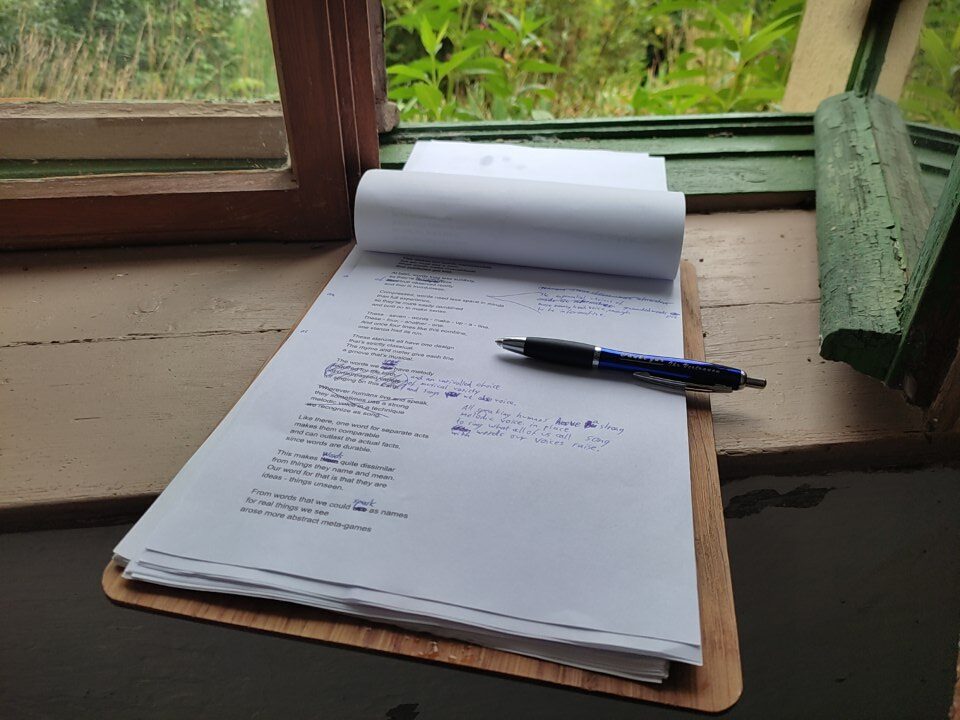
For once, I can report a large amount of progress. The last few days have been the most productive of the entire project so far. I now have a complete draft of the fifth Secular Sermon, now titled “The Words our Voices Raise”. I’m now nervously showing this draft to a very few very select friends, in order to get their feedback and to find those mistakes that only become apparent when I read the text out loud, rather than just see it written.
Right now it seems like this Sermon might actually be finished in August, which would be less than 18 months of writing overall – almost as quick as the third one, which I wrote when I had a less demanding job, a functioning marriage and no kids.
Some of the reason is situational. I’m on holiday, stretching out at the home of my parents, where I don’t have my job or my kids or my divorce cluttering up precious working memory. My parents are amazing.
The docket space a few days ago was a huge catalyst, especially because it split up all the unanswered questions and unsolved problems into managable chunks, which are much easier to attack from various angles. Retrospectively, it was clearly a huge mistake not to do something like that before. I explained my slow pace mostly with the particularly difficult format, which was an axiomatic fact of life, and now I understand it was partly a result of poor method.
But another part of it is just that I have indeed gotten more proficient at the craft. It used to be that writing a Sermon stanza from scratch could take several hours, and now I usually do it in under ten minutes. There’s this idea that mastery of anything takes 10000 hours of practice, and I figure that in writing common meter stanzas, I’m about 10000 hours in. Many of the stanzas I have written in the last decade were not for the Sermons, but random stuff like what I post on Twitter occasionally, where I have much fewer rules, like “I and “you” are allowed.
What will you do when Putin dies?
The day is now not long.
You can make plans for his demise.
I’ll sing. I know which song.
Still, that too helps train those unconscious processes that are far more capable than conscious ones but learn only from imitation, not from explicit instruction. They have had thousands of hours to watch from inside the process of searching through rhymes and synonyms for some way to gracefully arrange a thought into the 28 syllables and the double rhymes and the meter, while also minding the various other rules. Their suggestions bubble up more readily and more frequently.
They’re often incomplete; like today I had this vague idea that I could improve a line about how words “unite us in a special way” with a word to replace “special” that had a more word-related tone. I had no conscious idea what that new word was, but I trusted the hunch, chased it down through the dictionaries for several minutes and finally ran into “novel” – which clearly was what the hunch had meant, but could not fully express because it didn’t have the whole machinery of conscious thought behind it. Still, doing it this way is much quicker than starting top-down from a conscious question like “how I can I improve this line”.
I have come to rely more heavily on the excellent RhymeZone app, which unites searches for rhymes, near rhymes and synonyms, so I don’t need to switch tools so often. This too has sped up the process, and the quality is better too; it especially makes it easier to score those precious multisyllabic rhymes.
Since everything is easier now, I can just write a few exploratory verses to feel out some direction I could go, and if I find after three stanzas that it doesn’t work, I can just discard them and have only spent half an hour ruling out an option, not three or more. This “rhyme first, ask questions later” approach has definitely helped adress some of the long-standing issues I had only a few weeks ago.